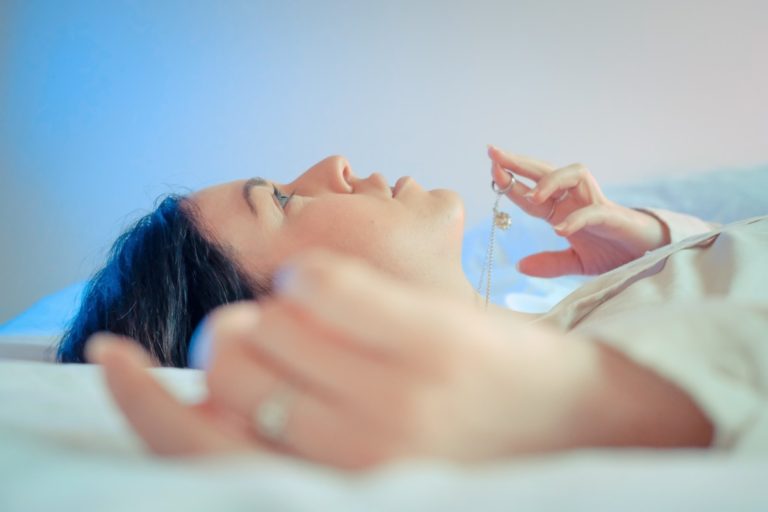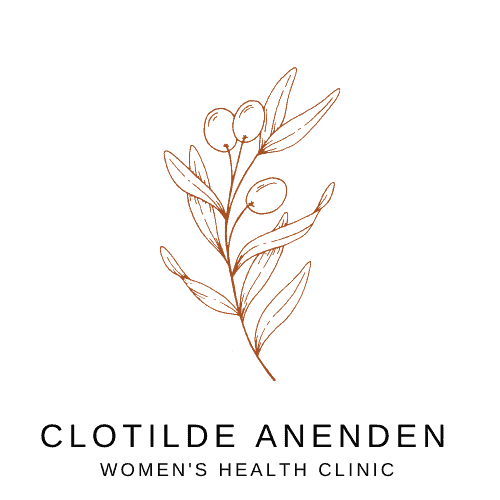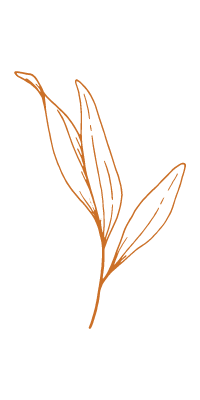
PCOS symptoms can be so disheartening: from irregular periods, to acne, falling hair and hirsutism, weight loss that seems impossible…and the list goes on.
But what causes PCOS? How does PCOS occur? Which PCOS do you have? Why should you find out?
Read on and find out more.
Is it genetic?
Polycystic ovary syndrome sometimes runs in families but no specific genes have been identified as being associated with it yet.
As I often say, the genes load the gun but the environment pulls the trigger. What do I mean by this? Well, you may have a predisposition to develop PCOS if a mother, sister or aunt has it, however, your lifestyle, your diet, your exercise, your environment may well be what determines whether or not you develop this syndrome, and suffer with symptoms or not [1].
Suffice to say, there is not one single explanation to what causes PCOS. Rather, a few factors seem to be implicated. This is why I always prone a multi-factorial approach with my clients.
But let’s have a look at a few of the potential root causes of PCOS.
I've been told my acne, my hirsutism are all due to high male hormones.
Is this causing my PCOS then?
Well, yes and no. Yes, many PCOS symptoms are linked to the presence of too much testosterone (facial and unwanted body hair, acne, hair loss or thinning hair on the scalp…). However, we need to ask what is causing the testosterone to be high in the first place?
One of the reasons is that our ovaries produce testosterone which, if all is well, is converted to oestrogen by an enzyme called aromatase. However, in PCOS the cells that are supposed to produce aromatase in our ovaries don’t do their job really well (for reasons we currently do not know) and less aromatase is produced. The result is that less oestrogen is produced than normal and therefore more testosterone remains.
In addition, high testosterone levels damage the oestrogen receptors in our body. In a nutshell this means that the little oestrogen we do have is less likely to be recognised by the cells and tissues that need oestrogen to function – which is virtually all tissues in our bodies, not just our ovaries.
But this is not the full story.
Why does PCOS cause weight gain?
I heard insulin resistance may play a role?
Well, it seems insulin resistance may be one of the possible causes of PCOS, which is fascinating and also great news as this is something we can definitely work on with nutrition and lifestyle changes. Read on as I explain how it may work and the impact on our weight.
Up to 70% of women with PCOS have insulin resistance [2] which is a key factor to evaluate and rule out or address.
Insulin is a hormone that our body needs to get the sugar that we eat move from our blood to our cells who then produce energy for us to move, think, go on with our daily lives… Insulin is the storage hormone, it is like a key that opens the door of our liver and muscle cells, to let the glucose/ sugar get in for later use.
When the sugar in our blood is too high (maybe after a heavy meal, too many carbohydrates or sweet / processed foods), our body tries and produce more insulin to get rid of the excess sugar in our blood and to get it to enter our cells. This is because high blood sugar may damage the cells in our brain, heart, pancreas, liver and eyes… so it is pretty important to keep our blood sugar constant: not too low and certainly not too high.
When this happens too often and too much, our body runs the risk of developing insulin resistance, in other words, we produce more and more insulin to get the sugar to our cells, but it is less and less effective at doing its job. So in the meantime, when sugar can’t get into the cells to get used or stored, it is stored as fat instead, leading to weight gain.
But, what’s the link with the high testosterone we just mentioned?
Well, high insulin levels may also cause the ovaries to produce too much testosterone, which in addition to all the symptoms we mentioned may also prevent normal ovulation from happening.
Also, high insulin levels reduce the sex hormone binding globulin levels in the blood (SHBG). SHBG attach to any excess hormones in the blood, so if its levels are low, it means the testosterone and oestrogen are free to circulate. In this case, the excess testosterone is not being mopped out.
Inflammation
Inflammation in the body is normal to a certain level. It is a key mechanism of our immune system, and one that we notice a lot with infections. It manifests itself with heat, pain, swelling and redness, and is a good sign of our body mounting a defence against an attack to our immune system.
However, when our immune system is chronically activated (by things like food intolerances, environmental toxins, poor gut health, high stress or insulin resistance), inflammation happens chronically too.
Chronic inflammation can then increase androgens, our male hormones and stop ovulation.
Signs of chronic inflammation include being sick all the time, repetitive infections, asthma, allergies, eczema, sore joints, irritable bowel syndrome amongst others.
Elevated stress hormone
So many of us live, under a lot of stress which physiologically will translate into our adrenal glands to produce a lot of adrenaline and cortisol (the 2 stress hormones). Adrenaline keeps you focused and cortisol lead to an increase in sugar and fat in your blood, to ensure that you have the supply to deal with the stress. Yes our bodies have been designed so we have the best chance of escaping from the lion threatening us in the savanna. Alas, this kind of short-lived stress or fight or flight situation has been replaced by sustained daily stress, often ongoing unresolved over long periods of time.
To ensure a ready supply of sugar to our muscles, cortisol production then leads to more insulin being produced. As we saw above, this increase testosterone production by the ovaries again. And the vicious circle starts again…
What also happens is that at the same time as it produces adrenaline and cortisol, the adrenal glands also produce other male hormones or androgens such as DHEAs and androstenedione.
Is there such a thing as post-pill PCOS?
When a woman stops taking the oral contraceptive pill, the communication between the brain and the ovaries should resume. However, for some women it does not happen straight away [3]. This means their ratio of LH and FSH is not back to normal, preventing the ovulation to occur (see my blog on the menstrual cycle for more info on how they work).
This short-term delay in re-establishing ovulation (and fertility) is often accompanied by an increase in androgen hormones and associated symptoms such as acne. However, if your periods had always been regular before you started taking the oral contraceptive pill, it is likely this situation will not last.
Unknown cause
There is still so much we need to learn about PCOS. If you don’t recognise yourself in any of the above, it may well be that something else is causing your PCOS.
Thyroid condition is often part of the picture: indeed, women with PCOS have a higher prevalence of subclinical hypothyroidism [4] , which may also worsen insulin resistance [5] .
So what do I do?
How do I know what is causing my PCOS?
Many different tests are available to check those different factors that may be implicated. Lifestyle and diet changes go a long way to start addressing them.
So why not book a free discovery call to discuss how I can help you start addressing your PCOS symptoms?
References:
- Escobar-Morreale, H.F. (2018) ‘Polycystic ovary syndrome: definition, aetiology, diagnosis and treatment’ Nature reviews. Endocrinology. 14(5), pp.270-284. DOI: 10.1038/nrendo.2018.24
- Moghetti P. Insulin Resistance and Polycystic Ovary Syndrome. Curr Pharm Des. 2016;22(36):5526-5534. doi: 10.2174/1381612822666160720155855. PMID: 27510482.
- Mikkelsen EM, Riis AH, Wise LA, Hatch EE, Rothman KJ, Sørensen HT. Pre-gravid oral contraceptive use and time to pregnancy: a Danish prospective cohort study. Hum Reprod. 2013 May;28(5):1398-405. doi: 10.1093/humrep/det023. Epub 2013 Feb 20. PMID: 23427234; PMCID: PMC3627337.
Ding, Xiaohong et al. “Subclinical Hypothyroidism in Polycystic Ovary Syndrome: A Systematic Review and Meta-Analysis.” Frontiers in endocrinology vol. 9 700. 27 Nov. 2018, doi:10.3389/fendo.2018.00700
Fatima, Murk et al. “Correlation of Subclinical Hypothyroidism With Polycystic Ovary Syndrome (PCOS).” Cureus vol. 12,5 e8142. 15 May. 2020, doi:10.7759/cureus.8142



